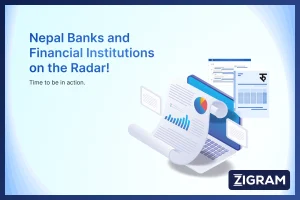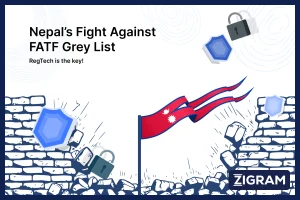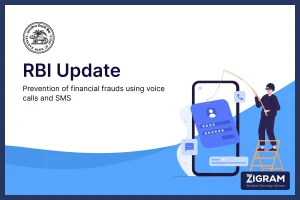AML Regulations for cryptocurrencies has been a prime focus for governments around the world. Once seen as a financial haven for high-risk countries like Iran and North Korea to evade sanctions, the cryptocurrency space has evolved into a prime avenue for mainstream hackers and money launderers. The allure of digital currencies lies not only in their innovative technology but also in their ability to facilitate anonymous transactions. While this has spurred adoption, it has also made the crypto world a breeding ground for money laundering and terror financing.

According to a 2022 study by Chainalysis, the total cryptocurrency laundered globally reached a staggering US$23.8 billion, up from US$14.2 billion in 2021 and US$8.5 billion in 2020. These numbers reflect the rapid expansion of financial crimes within the digital currency sphere. Despite efforts from regulators, the data indicates a pressing need for stronger regulations to secure the crypto landscape from illicit activities.
Why AML Regulations Are Necessary for the Cryptocurrency Landscape
The rise of cryptocurrency has introduced vulnerabilities that make it susceptible to financial crimes. Decentralized finance (DeFi) exchanges, in particular, have been subject to hacking, allowing criminals to steal currency without detection. Even though every transaction is recorded on the blockchain, bad actors have discovered ways to evade suspicion.
One prominent tool used by criminals is cryptocurrency “mixers” or “tumblers.” These services combine multiple transactions into a single batch, effectively obscuring the trail of individual funds. By dispersing illegal funds into a large pool of transactions, mixers make it nearly impossible to trace the origins of the money, thus facilitating money laundering. Similarly, over-the-counter (OTC) crypto-to-fiat exchanges have been exploited to convert illicit crypto into traditional currency.
Recognizing these vulnerabilities, global regulatory bodies have started to act. In India, for instance, the government has implemented Know Your Customer (KYC) procedures for all cryptocurrency exchanges under the Prevention of Money Laundering Act, 2002. These guidelines demand thorough scrutiny of transactions exceeding INR 1 million, making it harder for criminals to operate undetected. Similarly, in the U.S., the Financial Crimes Enforcement Network (FinCEN) requires crypto mixers and DeFi services to register and comply with anti-money laundering (AML) laws, adding another layer of defense against illicit activities.
The Challenges of Enforcing AML in Cryptocurrency
Despite increased efforts from regulators, ensuring compliance in the cryptocurrency sector is fraught with difficulties. The decentralized and global nature of cryptocurrency transactions allows criminals to circumvent regulations, especially during cross-border transfers. Different nations have varying degrees of regulatory scrutiny, making it hard to establish consistent oversight.
This lack of uniform regulation complicates the customer onboarding process for cryptocurrency exchanges. Stringent KYC procedures and detailed transaction verification steps add complexity, often delaying conversions and affecting exchange rates. While these measures aim to increase security, they also introduce friction into the user experience, which may drive some customers toward less-regulated platforms.
Blockchain: A Tool for Financial Crime Prevention?
Ironically, blockchain technology, the foundation of cryptocurrencies, is emerging as a potential tool to combat financial crime. By providing a transparent, immutable ledger of transactions, blockchain can be leveraged for AML purposes. Blockchain’s traceability, when combined with sophisticated algorithms, can help law enforcement track suspicious activity across borders, potentially closing the gaps exploited by criminals.
The introduction of regulatory measures has generally been well-received by legitimate crypto businesses. Adopting these rules not only improves investor confidence but also enhances the credibility of the entire industry. The safety concerns surrounding cryptocurrency investments have long been a deterrent for mainstream adoption. Well-implemented regulations could mitigate these concerns, paving the way for wider acceptance of digital currencies as legitimate financial instruments.
The cryptocurrency industry’s exponential growth comes with significant risks, primarily driven by the anonymous nature of transactions and the technological ease of facilitating financial crime. The data speaks for itself: money laundering and other illicit activities are on the rise, and without proper regulation, this trend will continue. The global nature of cryptocurrency transactions presents unique challenges for regulators, but emerging technologies like blockchain could be part of the solution.
Ultimately, the success of AML regulations in the crypto space will depend on international cooperation, technological advancements, and the willingness of legitimate businesses to comply. As the industry matures, a balance between innovation and security must be struck, ensuring that cryptocurrency can thrive while remaining safe from exploitation by criminals.
ZIGRAM is the one-stop solution for all your compliance needs. Try our FREE DEMO to experience the AI developed to fight against money laundering.
- #CryptocurrencyCrime
- #MoneyLaunderingRisk
- #CryptocurrencyRegulation
- #FinancialCrimePrevention
- #CryptocurrencyLaundering
- #RegulatoryEfforts
- #DecentralizedFinance
- #CryptocurrencyMixers
- #OTCExchanges
- #KYCProcess
- #FinCEN
- #GlobalRegulations
- #CrossBorderTransactions
- #BlockchainForAML
- #InvestorConfidence
- #CryptoIndustryReputation
- #InvestorConfidence
- #SafetyInCryptocurrency
- #RegulatoryCompliance
- #InvestorConfidence
- #BlockchainTechnology
- #CryptocurrencyAdoption
- #AMLCompliance
- #BrighterCryptoFuture






